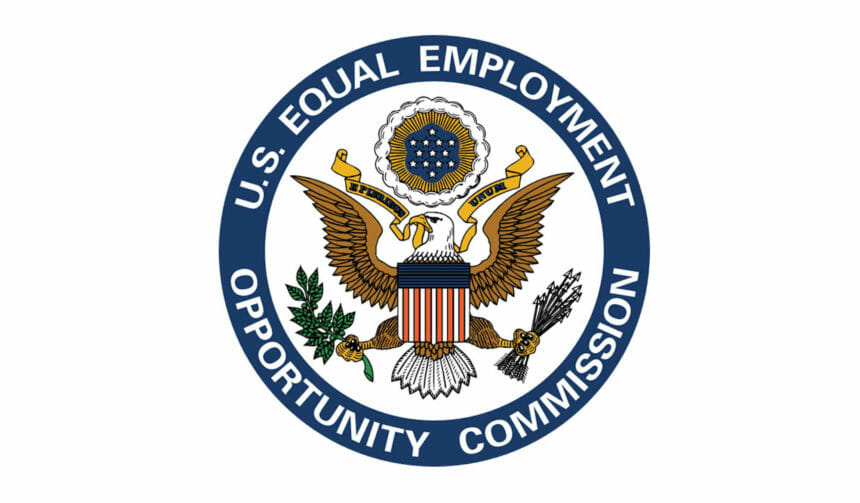
Employers can require proof of COVID-19 vaccination from employees — with some exceptions — according to new recommendations from the Equal Employment Opportunity Commission.
The EEOC released guidance on Wednesday that explores the requirements and considerations if employers mandate COVID-19 vaccinations for employees. But it doesn’t answer the question of whether a mandatory vaccination policy is allowed if a vaccine’s approval falls under the Food and Drug Administration’s emergency use authorization. The EEOC guidance directs employers to the FDA for questions regarding EUA.
Both the Pfizer BioNTech and Moderna vaccines were approved under the FDA’s EUA.
Without a definitive answer, the information is left to interpretation by employers and how they will proceed. But states may limit what providers want to do. The guidance states that “EEO laws do not interfere with or prevent employers from following CDC or other federal, state and local public health authorities’ guidelines and suggestions.”
In an update to its members, LeadingAge said employers — specifically healthcare providers — may require employees to get certain vaccines that have gone through the full FDA process as a condition of employment. But those mandates are subject to exceptions based on accommodations for disability or religious objections available under state or federal law.
“As this is a new virus and there may be multiple vaccines available, education will be critical for employers to assure their workforce is aware of the benefits of a vaccination,” LeadingAge stated.
The association adds that if employers are exploring whether to mandate vaccination, they need to consider whether it affects potential worker’s compensation or personal injury claims by an employee resulting from adverse reactions to the vaccine.
The American Health Care Association / National Center for Assisted Living said the information is helpful “as providers seek to work with staff to vaccinate as many caregivers and frontline workers as possible in order to protect our vulnerable population.”
Although federal laws can require employers to grant exemptions based on disability or religious accommodations, employers may be permitted to exclude from the workplace individuals unable to receive a COVID-19 vaccine under certain circumstances.
“If an employee cannot get vaccinated for COVID-19 because of a disability of sincerely held religious belief, practice or observance, and there is no reasonable accommodation possible, then it would be lawful for the employer to exclude the employee from the workplace,” the EEO guidance reads.
This doesn’t mean an employer can automatically terminate a worker’s employment. Employers would need to determine whether any other rights apply under the EEO laws or other federal, state and local laws.
American Seniors Housing Association President David Schless said senior living companies may be considering mandating COVID-19 vaccination as a condition of employment.
“I think some would interpret this language to say that there’s an argument that there isn’t really a way to safely accommodate an employee who doesn’t want to get vaccinated in an assisted living setting, because it’s an airborne virus,” Schless said. “If you’re working in the community without a vaccine, it exposes residents to a virus that is potentially lethal.”
Schless said it will be interesting to see how companies respond.
“Companies we talk to are really building messaging and thinking about how to really most effectively communicate the importance of getting the vaccine,” Schless said. “Hopefully, we can do that as an industry and communicate the importance of it.”




